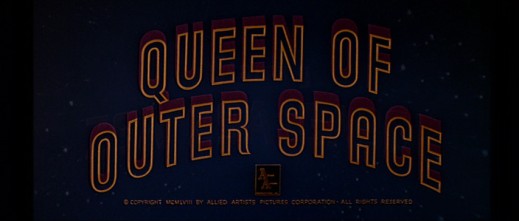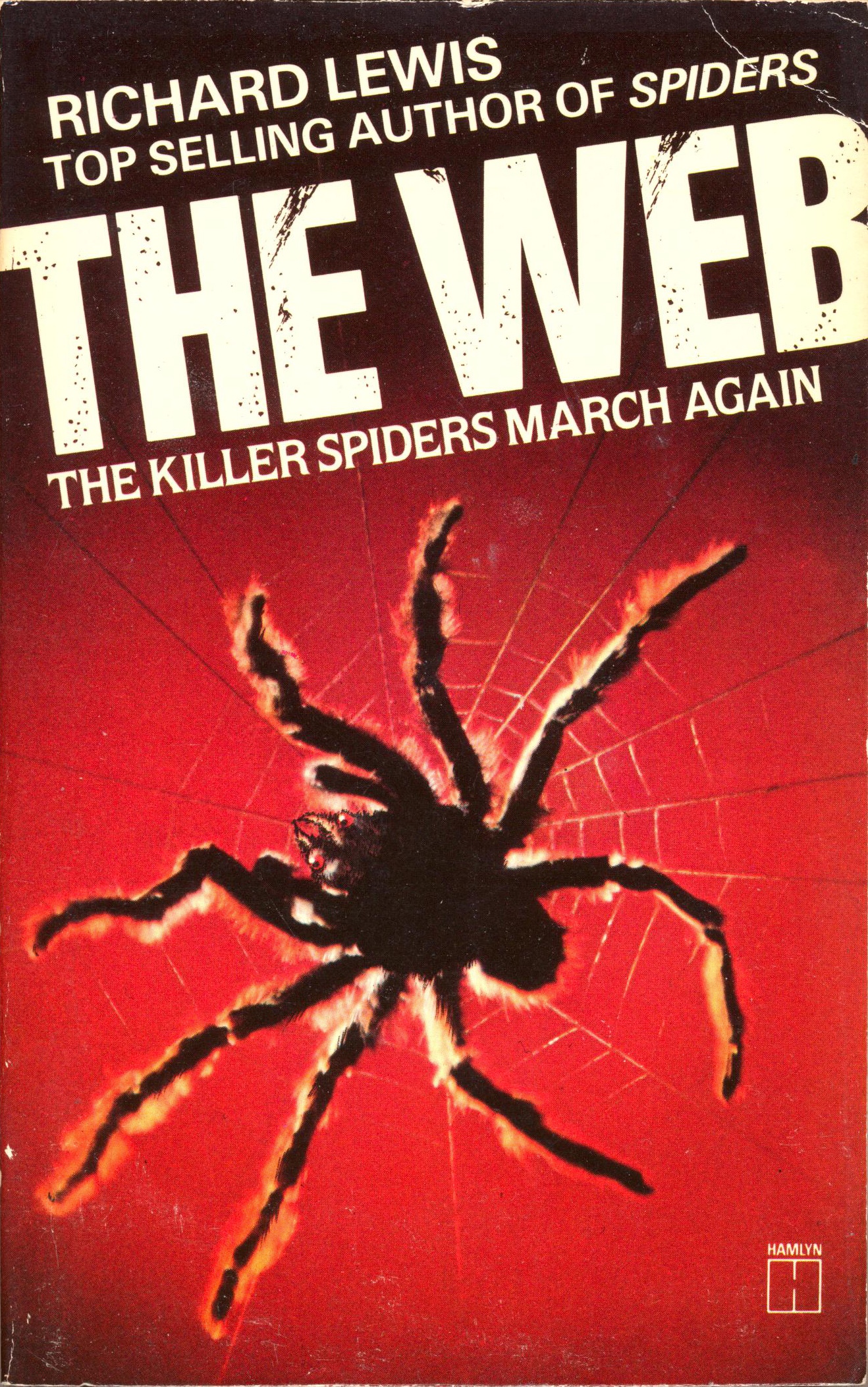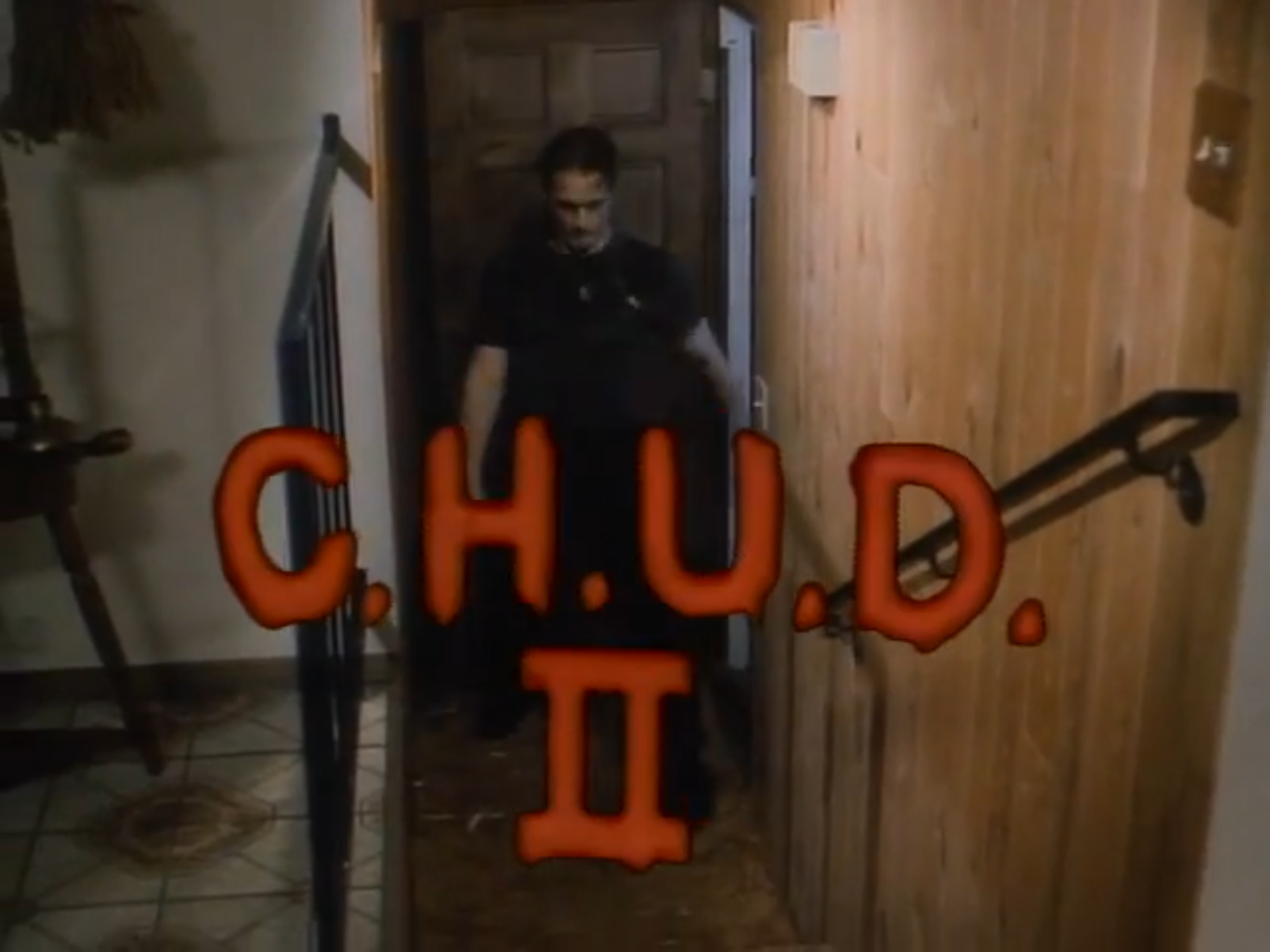Prove This Chair Exists
I’ve been pondering an essay talking about Kiyoshi Kurosawa’s Cure and Akira Kurosawa’s Dreams, but whatever tenuous connection I’d made in my mind never formed into the discussion of perception, knowledge, and reality that I’d envisioned. They lingered in the back of my mind, and today they came back to the fore when my brother put in Spinning Man for us to watch.
Read More…The Futility of Action in Science Horror
I recently rewatched a 1967 Christopher Lee film called Night of the Big Heat (aka Island of the Burning Damned), and its ending got me thinking of the connection between nature and the futility of human action in science fiction movies with a horror bent. This one is going to get spoilery about films, so if that bothers you here’s your chance to bail.
Read More…Queen of Outer Space (1958)

Directed by Edward Bernds
Written by Charles Beaumont and Edward Bernds
Based on Queen of the Universe by Ben Hecht
Starring Zsa Zsa Gabor, Eric Fleming, Dave Willock, and Laurie Mitchell
What comes to mind when you think about mid-century sci-fi films? Leaden dialog? Clunky robots? Space ships? Misogyny? Queen of Outer Space is not everything you think it will be, but it is in many ways a perfect stereotype of the space adventure genre. At least of one disreputable branch of it.
Read More…Aelita (1923)
aka Aelita, or The Decline of Mars
Written by Aleksei Nikolaevich Tolstoi
The Russian Revolution, at least the one that ended with the creation of the Soviet state, began in 1917. There was a lot that went into sparking it, and it’s beyond the purview of this book review to go into the details of it, but it is true that the conditions of industrial workers contributed to the dissatisfaction behind it. (As did the Russian defeats in WWI, which was still ongoing.) The center of the tsarist and then provisional government was Petrograd (now St. Petersburg), which is where Aleksei N. Tolstoi’s Aelita begins.
The year is 192_. We don’t know the last digit, but we know that the book was published in 1922 or 1923 (I’m finding conflicting dates on that…), and that the revolution “ended” in 1922. At most, the story starts only 7 years after the creation of the USSR. This proximity in setting (and writing) to the time and place of the revolution informs the narrative in several ways, from the characters to the events on Mars. (Additionally, although Tolstoi had no way to know this before publication, Petrograd would be renamed to Leningrad in 1924. Let’s just ignore that.)
Our human adventurers are Mstislav Sergeyevich Los and Alexei Ivanovich Gusev. Los is the designer of the spaceship the pair use. A recent widower, he takes no joy in anything. He now views the trip as a patriotic and hopefully suicidal gesture. Gusev is a soldier with no more war to fight. He is married, but he too finds little meaning in existence. For him the trip is an opportunity for adventure. Or death. Maybe both.
The Petrograd they are leaving is a city in ruins. Gusev and his wife live in one room of a decaying mansion, abandoned when the rich fled the city. This is where the revolt started, and a succession of upheavals in government have left it with broken infrastructure and shattered people. The crowd that gathers to watch Los and Gusev’s departure doesn’t expect to witness success, but it is a way to distract themselves from their daily struggles.
The trip to Mars starts on page 20 of the translation I read. It’s a fast read, with short chapters and only about 160 pages. Things happen quickly, even when not a lot is going on. There are a few sections on the history of Mars, but they pass quickly, skimming over thousands of years on two worlds. It’s a feel that I love, getting a sense of the expansiveness of the environment without slowing the pace.
The ruling class are descended from a Martian tribe that interbred with the Atlantean conquerors, who in turn— Look, it’s frankly silly and not a little racist here. Let’s just say that there’s a legend about the return of the Sons of the Sky. This causes two divergent reactions to the arrival of the cosmonauts. The worker class hails them as a sign of change, and the leader of the Supreme Council, Tuskub, fears they’re conquerors.
The situation on Mars is desperate. The planet is declining, and resources are dwindling. Tuskub believes that there is no salvation, and his plan is to destroy the masses so that he and the other rulers can live out the remaining days of the planet in luxury. In his mind, his legacy will be a glorious sunset for Martian civilization. It’s a pretty clear analogy for the recent events in and around Petrograd.
Who or what is the Aelita of the title? She’s the aristocratic daughter of Tuskub, a priestess who teaches the humans the Martian language and the history of the planet. She’s critical for exposition, but it honestly makes zero sense why Tuskub would expose her to the strangers from space. She gets a terrible plot arc, obliged to fall in love with the old widower. In the end, she’s just another woman for Los to lose.
By now, you’re wondering why I’m writing about this book. There are only a few animals on Mars that we’re introduced to. There are flying things and grazing things. And then there are the giant spiders.
Yes. I’m here for the spiders from Mars.
The first night that Los and Gusev are on Mars, they encounter the giant spiders along a dry riverbed. They discover dead spiders in abandoned buildings, and always in the dark places there are eyes.
Suddenly Los stopped. A chill of digust went down his spine. Three feet away, on the ground, large equine eyes, half-shut with reddish lids, stared at him through the thick leaves. They stared intently with vicious hostility.
“What’s the matter?” Gusev asked, and then saw the eyes. Without a thought, he shot at them. Dust flew up. The eyes disappeared. “What a disgusting thing!” Gusev turned and shot again at the brown-striped fat body running swiftly on long spider legs. It was a huge spider, the kind that are found only on the bottoms of deep seas on Earth. It disappeared in the underbrush.
pp. 36-7
Near the end of the book, as the Martian revolt is in shambles, Los and Gusev stumble through ancient underground passages in search of Aelita. They discover a crevasse from which an unsettling noise emerges. It’s the sound of breathing from countless spiders. Los realizes that after the last Martians die, the planet will belong to these creatures. There’s no future for the people of the planet.
Tuskub crushes the revolt and the city, and he recovers his errant daughter, leaving Los all but dead. Gusev takes Los back home. Their adventure has changed them. The failure of the Martian revolution seems to have cured Gusev’s restlessness, and he rejoins his wife. Los is driven by his desire to rejoin Aelita, and he works for others to produce another spacecraft.
It’s a curious story, clearly sympathetic to revolution and critical of those who let others starve while they live lavishly, but skeptical of the ability of a society to reform. The philosophy presented in the histories of Mars is that progress leads inevitably to violent collapse. The more knowledge that is accumulated, the faster we race to the brink. Certainly Tolstoi experienced enough turmoil, bloodshed, and iniquity in the decade prior to writing Aelita to warrant pessimism. Tolstoi left Russia for a time after the White Army lost to the Red, but he returned as a fierce nationalist.
It’s really no wonder that the Soviet movie made of the book in 1924 bears little resemblance to the text. Aelita may have been accepted because of Tolstoi’s very public return to the Soviet Union, but its themes were too complicated with pessimism and anti-war doubts to be a good fit for a film industry converting to Soviet themes. (In much the same way that big-budget Hollywood pictures avoid complicated motives and nuance.) But the movie is a story for another time. I may cover it despite the lack of spiders, just to provide a comparison with the book.
This review used the translation by Antonina W. Bouis published by Macmillan Publishing Co., Inc. © 1981
C.H.U.D. II: Bud the Chud – a Mite-y Movie Mention
Movie
C.H.U.D. II: Bud the Chud (1989)
Genres
Comedy, Horror, Science Fiction
Elevator Pitch
High school students wake up a zombie that the army had hidden in their small town.
Reasons to Watch
- Gerrit Graham is delightful as Bud
- Robert Vaughn knows exactly what kind of movie he’s in and just has fun with it
- So many ridiculous cameos (watch Rich Hall get a haircut!)
- Zombie rampage on Halloween
Random Observation
This feels like a zombie spoof that got picked up by someone who happened to have the rights to use the C.H.U.D. title. It has nothing to do with movie to which it is a purported sequel.
The Webby Writings of Richard Lewis

Some of us are old enough to remember Richard Lewis, a standup comic who achieved moderate success on the American cultural landscape, wrote a few books, and appeared in several movies and TV shows.
Forget about him. This is a different Richard Lewis. In fact, he’s not any Richard Lewis that you’ll easily track down. He doesn’t even appear on Wikipedia’s disambiguation page for “Richard Lewis”! He is said to really be a British suspense novelist named Alan Radnor, about whom I’ve found little information. All I need to know about him is that he wrote two magnificently delightful and silly horror novels about spiders.
The Bees (1978): A Mite-y Movie Mention
Movie
The Bees (1978)
Genres
Horror, Science Fiction, Thriller
Elevator Pitch
Scientists attempt to make killer bees infertile and wind up making them intelligent.
Reasons to Watch
- John Saxon negotiating with bees
- John Carradine buzzing happily to himself
- So many bees
- Unintentionally hilarious deaths
Random Observation
This is a totally sincere attempt to make a plea to save the environment. Sort of the Birdemic: Shock and Terror of its day.
7 Guardians of the Tomb
You may remember a few years back (in 2015!) I noted that Kelsey Grammer was slated to be in a spider movie called The Nest. Well, the title has changed to 7 Guardians of the Tomb, and it looks to be finally coming out this year. I can’t say it looks good, but it does look delightful. Ancient tombs, spiders, and things going boom — I’m in!


